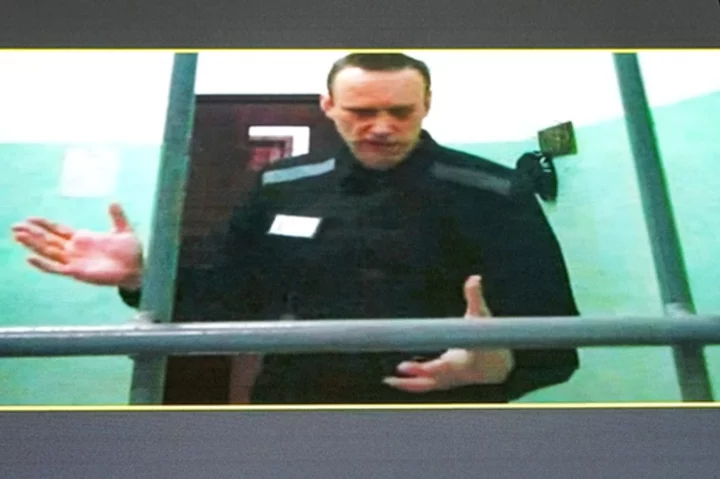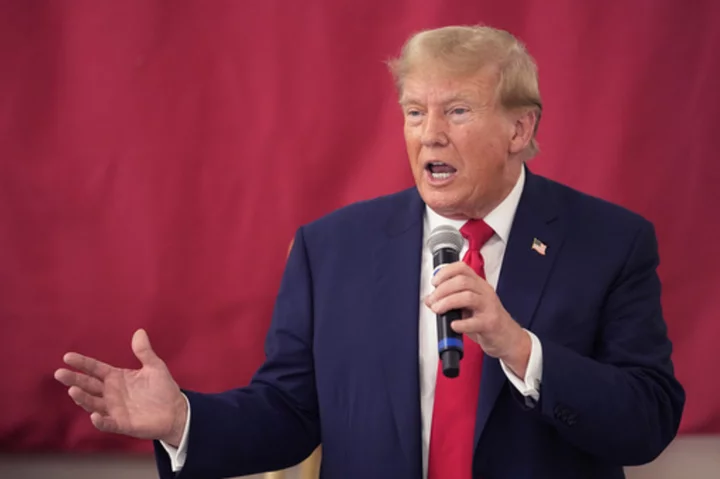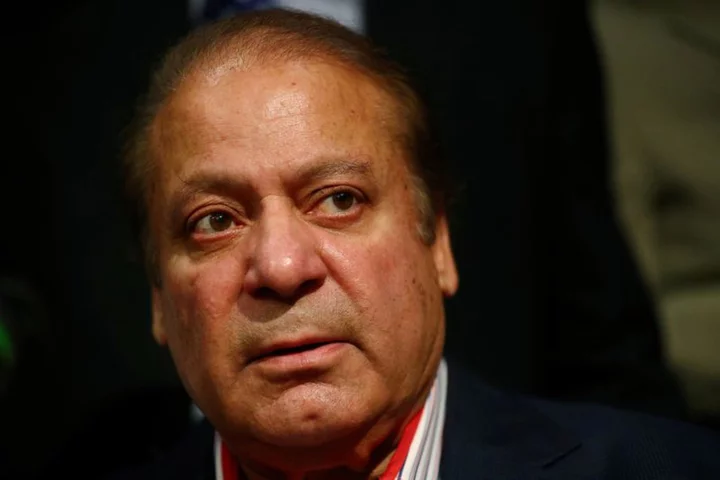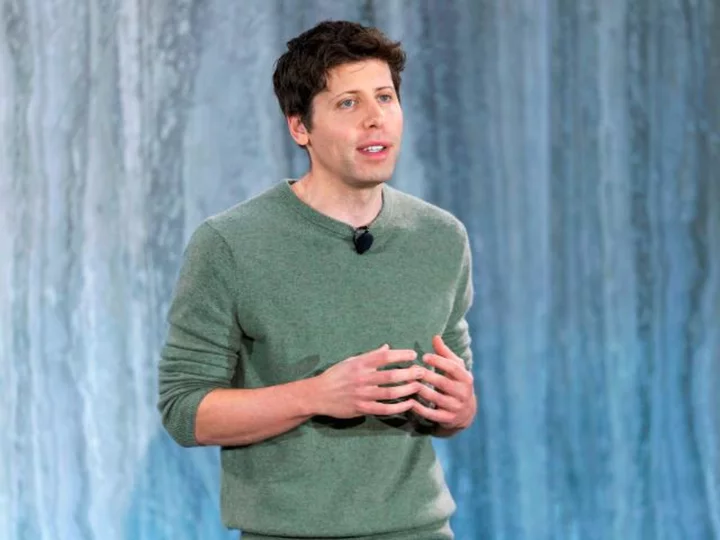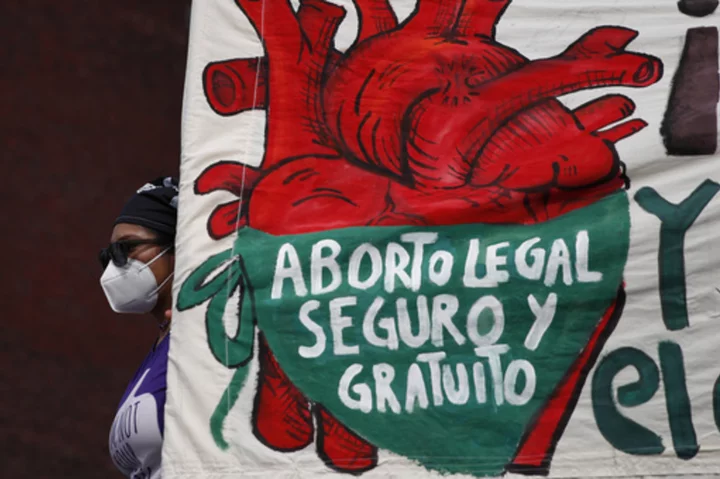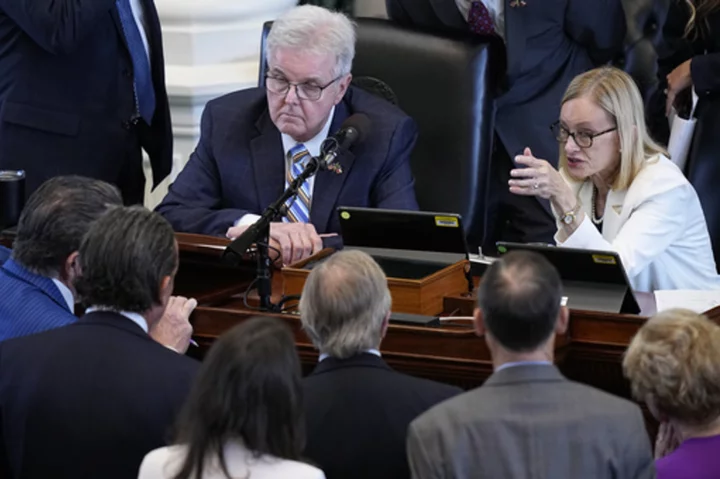MOSCOW (AP) — Imprisoned Russian opposition leader Alexei Navalny on Monday refused to leave his cell and skipped a court hearing, protesting after prison officials took away all of his writing supplies, his allies said.
Navalny, who is serving a 19-year prison term, was due to participate via video link in a court hearing on one of many lawsuits he had filed against his prison. His ally Ivan Zhdanov said the politician refused to leave his cell after prison officials took away all of his writing supplies.
After that, “security operatives in helmets entered the cell and, using force, dragged him to the investigator,” Zhdanov said, as the politician was also expected to attend unspecified “investigative procedures," He didn't clarify why Navalny's supplies were taken away and didn't say whether he was then returned to his cell.
Russia's independent news site Mediazona reported that after Navalny's refusal to appear, the court hearing was adjourned until Nov. 2.
Navalny is President Vladimir Putin’s fiercest foe, campaigning against official corruption and organizing major anti-Kremlin protests. He was arrested in 2021, after he returned to Moscow from Germany where he had recuperated from nerve agent poisoning that he blamed on the Kremlin. He has since been handed three prison terms, most recently on charges of extremism, and has faced unrelenting pressure, including months in solitary confinement after being accused of various minor infractions.
Navalny, who is currently held in a special punitive facility in Penal Colony No. 6 in the Vladimir region east of Moscow, is due to be transferred to a “special security” penal colony, a facility with the highest security level in the Russian penitentiary system.
Earlier this month, the Russian authorities arrested three lawyers who represented Navalny, accusing them of participating in an extremist group by allegedly passing messages between Navalny and his team. The charges stem from a 2021 court ruling that outlawed Navalny’s Anti-Corruption Foundation and a vast network of regional offices as extremist groups in a step that exposed anyone involved with them to prosecution.
Navalny's team rejected the charges as politically motivated and accused the authorities of trying to completely isolate the imprisoned opposition leader from the world outside his penal colony.

